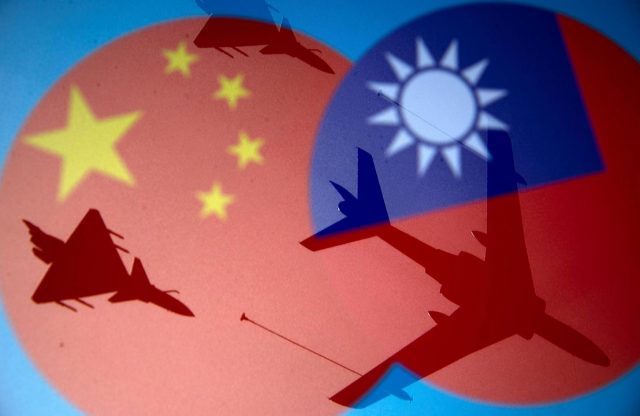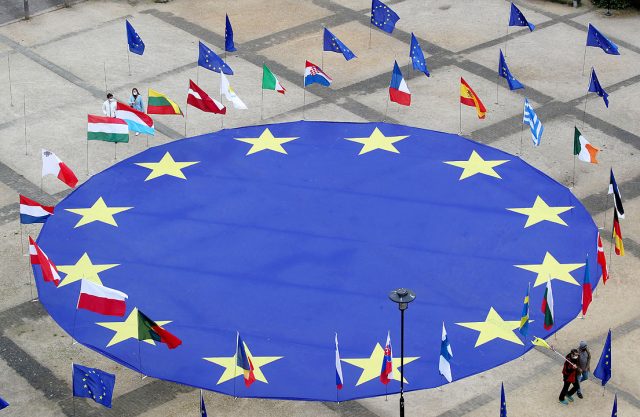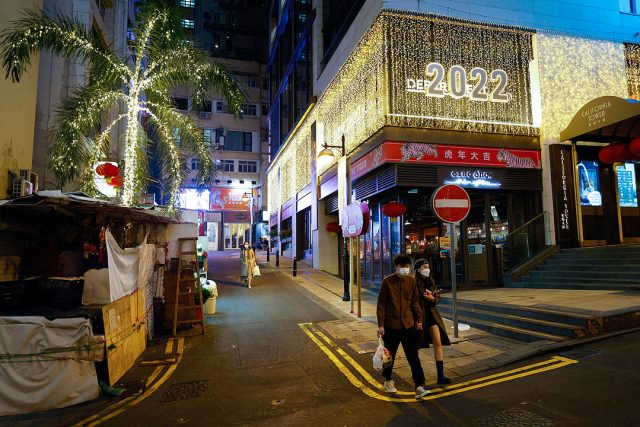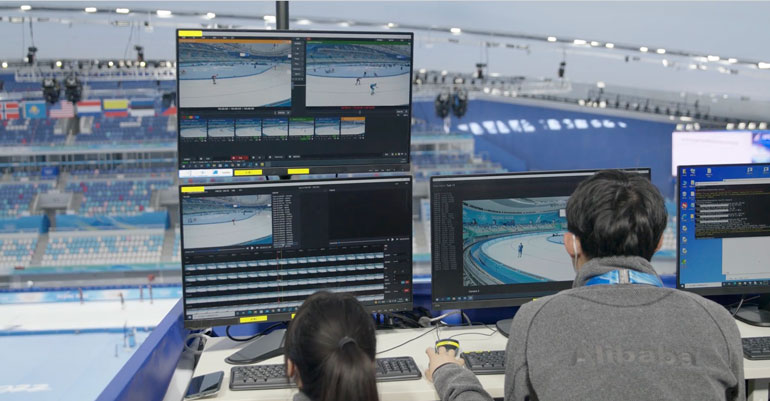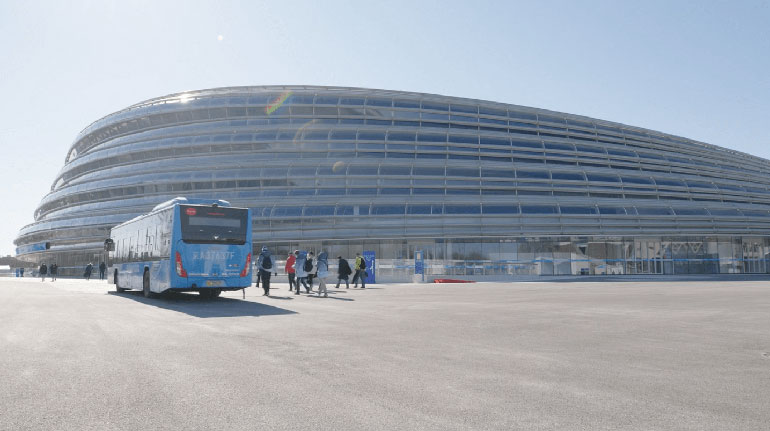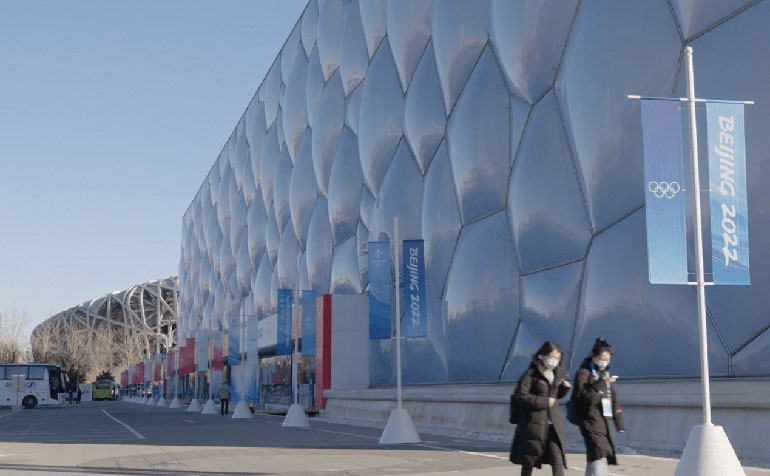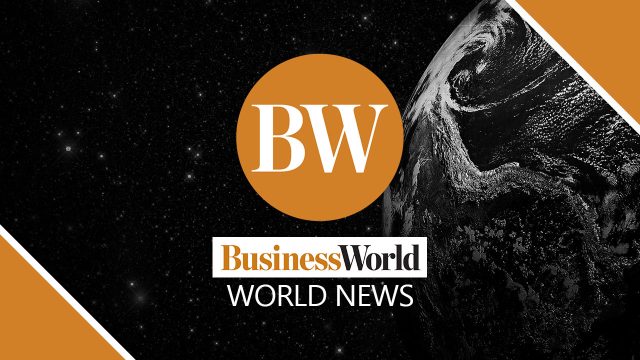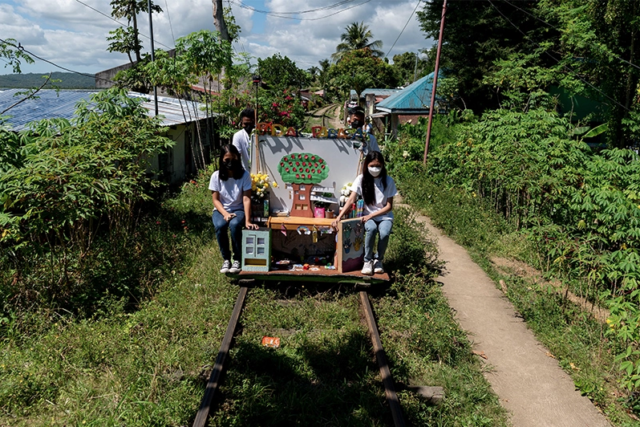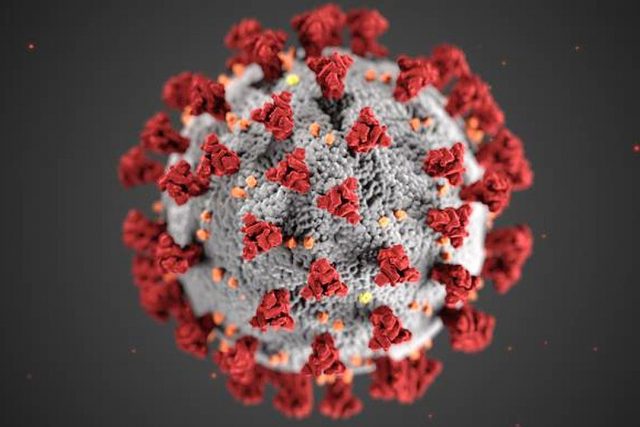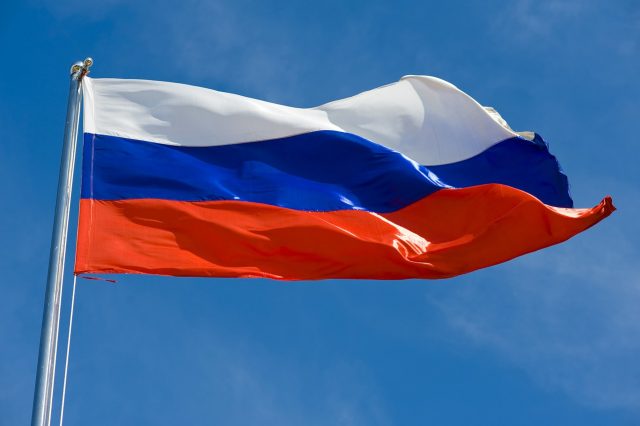MOSCOW/DONETSK/WASHINGTON – Western nations on Tuesday punished Russia with new sanctions for ordering troops into separatist regions of eastern Ukraine and threatened to go further if Moscow launched an all-out invasion of its neighbor.
The United States, the European Union, Canada and Britain announced plans to target banks and elites while Germany halted a major gas pipeline project from Russia, which they say has amassed more than 150,000 troops near Ukraine’s borders. Moscow has denied planning an invasion.
One of the worst security crises in Europe in decades is unfolding as Russian President Vladimir Putin ordered soldiers into Donetsk and Luhansk to “keep the peace.” Washington has dismissed that as “nonsense”.
Satellite imagery over the past 24 hours shows several new troop and equipment deployments in western Russia and more than 100 vehicles at a small airfield in southern Belarus, which borders Ukraine, according to U.S. firm Maxar.
Weeks of intense diplomacy have so far failed and on Tuesday both U.S. Secretary of State Antony Blinken and French foreign minister Jean-Yves Le Drian cancelled separate meetings scheduled with Russian counterpart Sergei Lavrov.
“To put it simply Russia just announced that it is carving out a big chunk of Ukraine,” Biden said on Tuesday.
“This is the beginning of a Russian invasion.”
Plans announced by Biden to bolster Estonia, Latvia and Lithuania include sending 800 infantry soldiers and up to eight F-35 fighter jets to locations along NATO’s eastern flank, a U.S. official said, but are a redistribution, not additions.
Putin did not watch Biden’s speech and Russia will first look at what the United States has outlined before responding, according to Kremlin spokesperson Dmitry Peskov, cited by Russian news agencies.
Early on Wednesday, Putin said he was always open to finding diplomatic solutions but that “the interests of Russia and the security of our citizens are unconditional for us.”
Moscow is calling for security guarantees, including a promise that Ukraine will never join NATO, while the U.S. and its allies offer Putin confidence-building and arms control steps to defuse the stand-off.
A meeting between Biden and Putin, brokered by France, “certainly is not in the plans” at this point in time, the White House said on Tuesday.
MORE SANCTIONS TO COME?
U.S. sanctions are being applied to VEB bank and Russia’s military bank, Promsvyazbank, which does defense deals, Biden said. Starting on Tuesday, sanctions will begin against Russian elites and their family members.
Tass news agency cited Promsvyazbank as saying the sanctions would not have a significant effect since it had taken precautionary measures ahead of time. It did not give details.
Washington also said that it restricted dealings in the secondary market with Russia’s sovereign debt for bonds issued after March 1.
Canada also announced similar steps and will impose sanctions on members of the Russian parliament who voted for the decision to recognise the two separatist areas.
But many Western nations held off the strictest sanctions as they try to dissuade a larger Russian assault. Russia’s Sberbank and VTB would face sanctions if Moscow proceeds with an invasion, said a senior U.S. official, warning of a hit to the wider economy.
“We are fully prepared with a very large number of countries across the world to implement … export control measures.”
The European Union and Britain chiefly targeted Russian banks and their ability to operate internationally with the impact likely to be minimal. Read full story
Lavrov earlier brushed off the threat of sanctions.
“Our European, American, British colleagues will not stop and will not calm down until they have exhausted all their possibilities for the so-called punishment of Russia,” he said.
MARKETS WORRY, SEPARATISTS CELEBRATE
The prospect of a disruption to energy supplies and fears of war – stoked by reports of shelling in some areas and movements of unmarked tanks overnight in the city of Donetsk – rattled markets and sent oil prices to their highest level since 2014.
Germany put the brakes on the new Nord Stream 2 pipeline and Britain also hit Russian banks with sanctions. The Russian foreign ministry criticized the new measures as “illegitimate”.
Germany is Russia’s biggest customer for natural gas, and the decision by Chancellor Olaf Scholz on the pipeline – built but awaiting approval – was widely seen as one of the strongest measures Europe could take.
Ukrainian Foreign Minister Dmytro Kuleba hailed the move.
“This is a morally, politically and practically correct step in the current circumstances,” he said. “True leadership means tough decisions in difficult times. Germany’s move proves just that.”
The Kremlin said it hoped the delay was temporary. Putin said Russia “aims to continue uninterrupted supplies” of energy to the world.
Following Russia’s recognition of the independence of Donetsk and Luhansk, some residents in Donetsk city celebrated, with cars flying Russian flags and sounding their horns.
But several blasts could be heard at midnight in the centre of the separatist-held city, a Reuters witness said.
The Russian-backed regions broke away from Ukrainian government control in 2014 and proclaimed themselves independent “people’s republics” after a pro-Moscow Ukrainian president was ousted in Kyiv.
“I know that the blood I spilled with my comrades and our labors and efforts and the losses of civilians were not in vain all this time,” Dmitry, a former member of a pro-Russian militia, said in Donetsk on Tuesday. — Reuters


